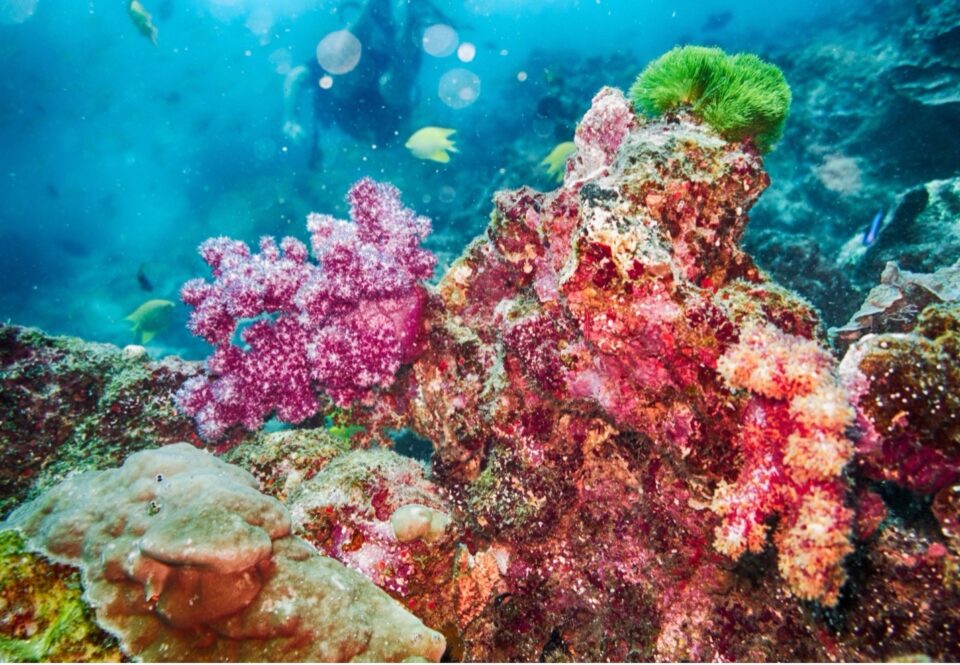One of the most devastating impacts of the rising oceanic temperatures has been the decimation of vast ecosystems of coral reef banks. While climate change is a driving force behind the demise of key coral reefs in numerous locations, damage is also inflicted by the local populations. Read on to learn about the importance of our coral reefs and the efforts being made to restore them to health.
What is Coral Reef Restoration?
While at first glance, coral may appear to be inanimate, it is actually a marine animal, or colonial invertebrate, that is closely related to sea anemones and jellyfish. The hard exoskeleton of coral that resembles colorful tentacles is made of individual animals known as polyps. Together these colonies of polyps build the structures known as coral reefs.
Coral reef restoration is the process of repairing, regrowing, and regenerating damaged coral reefs. Through the use of innovative human-powered techniques combined with known scientific methods, various conservation programs have been working to restore key coral reefs for more than two decades now.
Why is Coral Reef Restoration Essential to the Eco-System?
To understand the efforts being made to restore our coral reefs, one must first grasp the vast realm of benefits that coral reefs provide humanity. These include:
- Natural Protection. Large coral reefs called barrier reefs provide significant natural protection against storms by reducing the impact of wave energy that might otherwise cause erosion and damage to shorelines.
- Food Sources. Coral reefs host a rich environment for a wide range of fish species, which then become a primary food source for over 500 million people.
- Economic Prosperity. Coral reefs contribute to the economy by providing a habitat for commercial fisheries. The reefs are also a source of income for individuals who work in the tourism (divers and snorkelers), fishing, or related industries.
- Medicines. Organisms discovered on the surface of coral reefs have contributed to medicine and wellness, with applications for helping patients with cancer, heart disease, and asthma.
- Ecosystem and Biodiversity. The coral reefs help to keep our ocean waters clean and healthy by breaking down pollutants. The biodiverse nature of the reefs provides habitats where a wide range of marine species can breed.
What Causes Harm to Coral Reefs?
In recent decades, coral reefs have been inflicted with a variety of harms, leading to their diminishing presence and sustainability. These include:
- Ocean warming and acidification
- Pollution:
- From sediment caused by runoff and erosion
- From fertilizers and sewage
- From toxic chemicals
- From plastics and trash that damage the reefs
- Overfishing, using dynamite to fish, and bottom trawling all harm the reefs
- Construction for coastal development projects
- Damage from anchors or chains used by boats near the reefs
- Coral collection for commercial purposes
- Tropical storms
- Disease among the coral
- Invasive species that disrupt the ecosystem.
Challenges to Coral Reef Restoration
As noble an effort that coral reef restoration is, the process of restoring these reefs is rife with challenges. Consider the following challenges encountered:
- Continued warming of sea temperatures
- The cost of the restoration projects can be prohibitive
- Restoration takes many years for just a single coral colony to reach the desired size
- Lack of availability of healthy donor colonies
- Restoration efforts ultimately fail if the local environment is supportive and willing to make needed changes
Methods Used to Restore Coral Reefs
How exactly do we restore our damaged or depleted coral reefs and reintroduce healthy corals back into their native habitats? There are several methods used, including:
- Micro-fragmentation. This involves taking pieces of healthy coral and clipping them into smaller pieces where they can then be transplanted to the ailing reef.
- In vitro coral farming. Coral IVF involves collecting coral spawn, fertilizing them to create millions of larvae, and transplanting a multitude of varieties back to damaged reefs.
- Clam gardening. Giant clam gardens are grown in reefs to provide a habitat for other organisms, supporting coral health and biodiversity.
- Artificial reef installations. Using manmade structures placed on the ocean floor, these provide a place for coral larvae to attach and grow, allowing new colonies to form.
Coral Reef Restoration Projects
So, let’s talk about coral reef restoration success stories, and there are many of these that continue to provide encouragement. Check out these projects:
Great Barrier Reef, Australia. The primary method used to restore the Great Barrier Reef is Coral IVF. Once the baby corals are placed on the reef, they eventually have offspring which continue to breed. This method has been successful in revitalizing the damaged reef.
French Polynesia. Recent efforts to restore coral reefs in Tahiti, Fiji, and Thailand focus on creating more resilient corals that are less affected by climate change. The teams collect fragments of heat-resilient corals, propagate and grow them in nurseries, and outplant them onto the reefs.
Latin America. To restore the Caribbean coral reefs in Latin America, several techniques have been utilized since 2018. These include direct transplantation, coral gardening, micro-fragmentation, and larval propagation.
Get Involved in Coral Reef Restoration Efforts Today
If you have a heart for helping out with the coral reef restoration efforts, why not get involved? The Coral Restoration Foundation offers careers, internships, and dive programs that provide many opportunities to get involved in this important cause. Let’s join together to make this world a more positive place for everyone.


